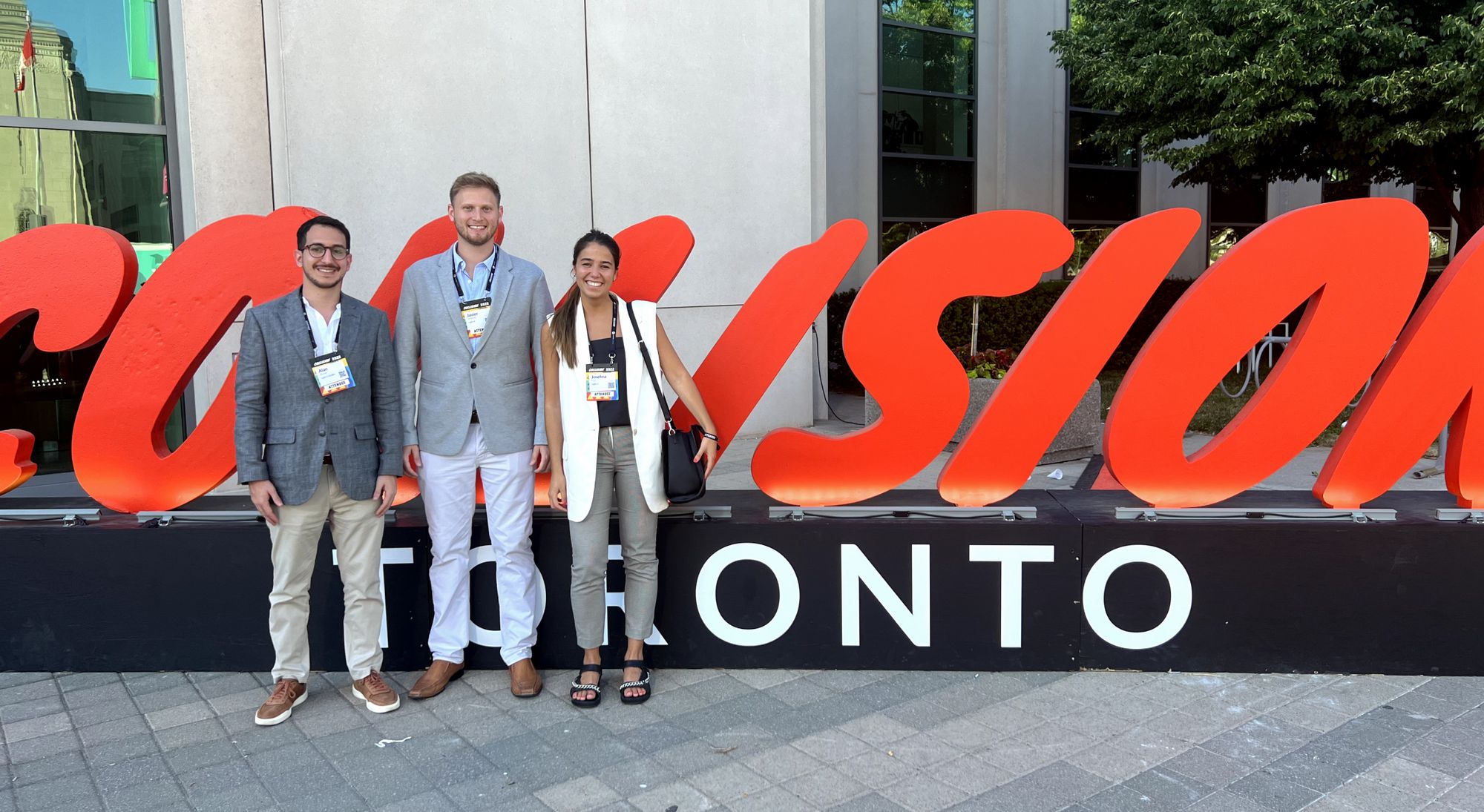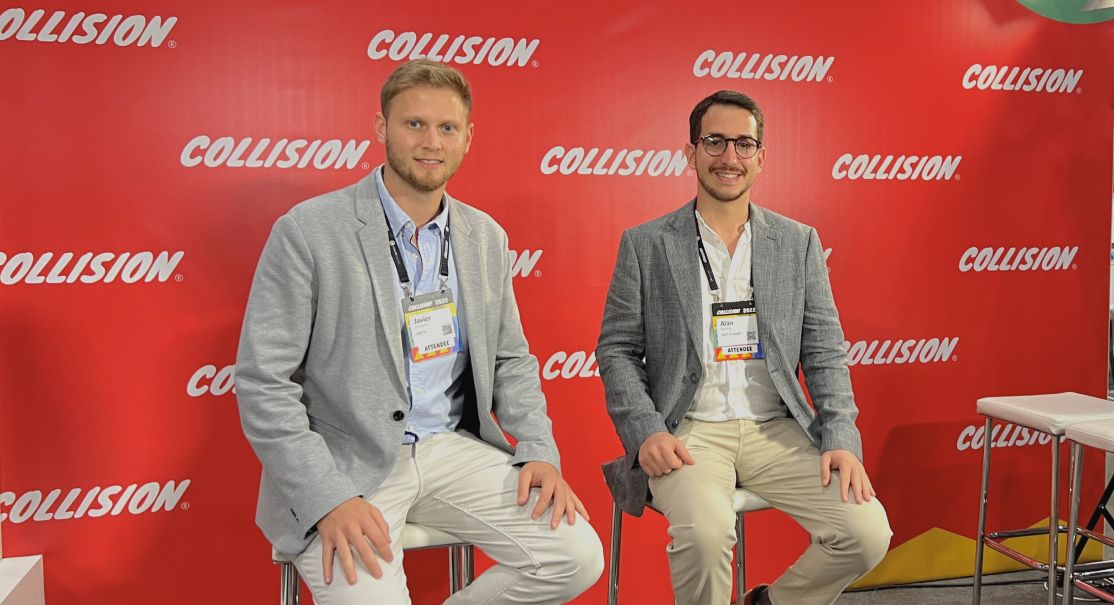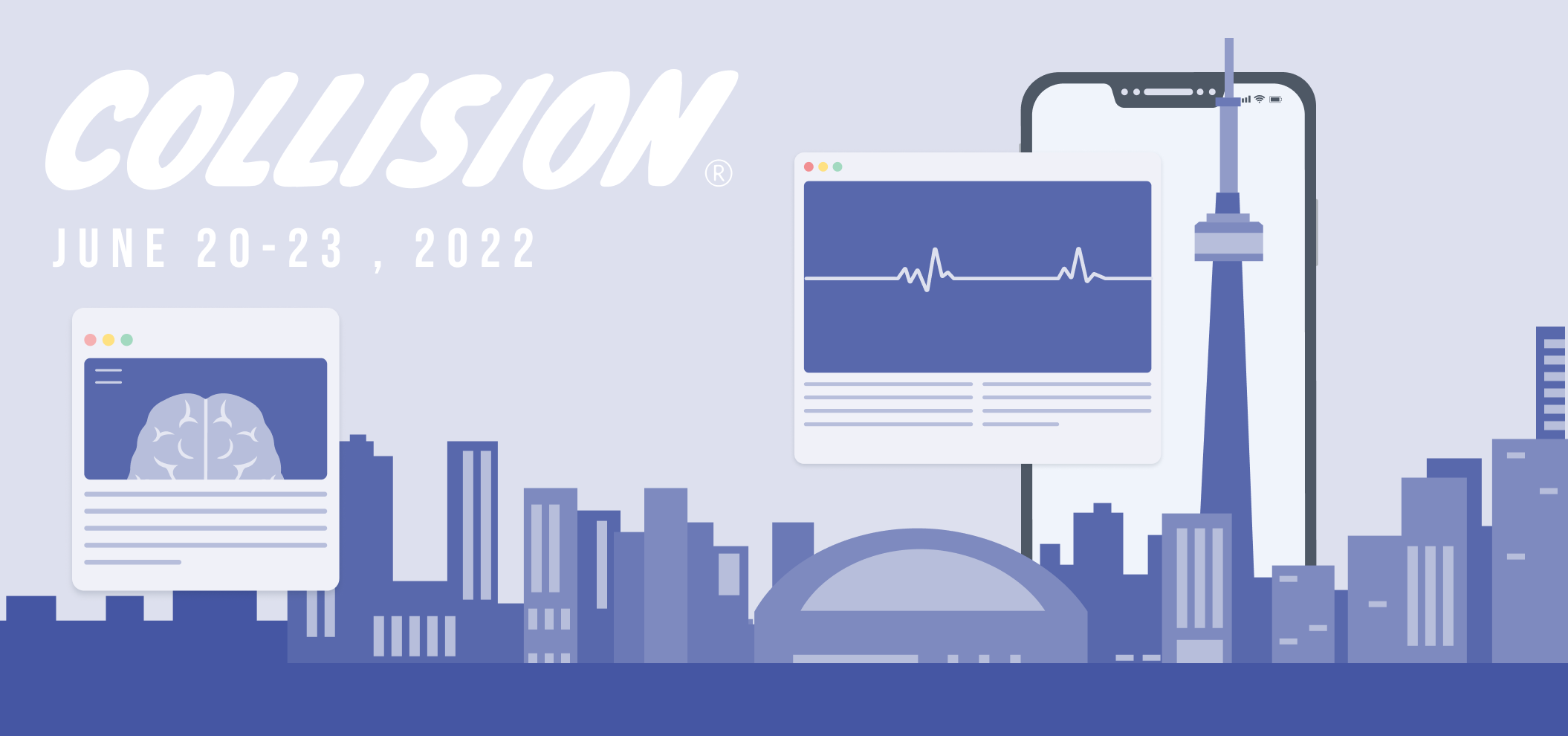Collision conference is one of the world’s most significant and relevant tech events, bringing together Fortune 500 companies, innovative startups, and world-class speakers. The conference has four key objectives:
- Networking: it offers the possibility to make valuable connections and meet peers in the industry. “Collision does a superb job of building community through networking.”
- Learning: Times for businesses in tech are incredibly uncertain, so it's inspiring to listen to people who are tackling such significant challenges and attend insightful masterclasses.
- Lead generation: “The event is a global gathering of provocative ideas, brilliance, and investment dollars.”
- Exposure: The conference is covered by more than 1400 journalists from the most prestigious names in the international media: Bloomberg, Financial Times, Forbes, CNN Business, CNBC, and the Wall Street Journal, are just some of them.
After the pandemic, “The Olympics of Tech” returned in-person to Toronto for great talks and networking sessions, and over 35000 attendees. So, of course, we couldn’t miss it, and we wanted to share our week's highlights from interesting talks.

Learning about the Future of Healthcare
Collision 2022 hosted an exciting mix of speakers, ranging from CEOs of tech companies to media personalities like Lupita Nyong’o. It was exciting to understand how the different industries leverage technology and the main trends. We were especially interested in the healthcare-related insights, and these are our biggest takeaways:
The pandemic was a game-changer
It’s no big news that the pandemic accelerated technological growth and adoption in the healthcare industry. It helped speed up the development process of innovative technologies, which would have taken the industry another decade to reach.
Virtual Care trends
One of the most significant advancements during the pandemic was virtual care, which helped people receive care without a personal visit, and encouraged remote patient monitoring. But even now, we can see that access to care in Canada and the US is inefficient, and we are faced with the question of whether or not the virtual care trend will continue… and the answer is YES.
It’s hard to picture what this will look like, if people will be able to randomly get virtual care whenever they need a doctor, or if it will be more limited. To some extent, it will allow vast flexibility, and according to Brett Belchetz, what will happen is an “exciting programmatic approach to use virtual care to fill needs in the health system.”
Currently, virtual care only allows 50-70% of medical conditions to be properly diagnosed. Still, we believe that in the following years, this is going to change thanks to upcoming tech advancements like peripherals, Bluetooth examination tools, AI, etc.
Another huge problem for hospitals worldwide is the struggle to find, recruit, and retain physicians. And virtual care was a great solution to this problem, allowing physicians across the globe to provide care regardless of their location. This brings us to another groundbreaking challenge that Covid-19 presented for companies, having to navigate and adapt to a new situation that placed all of us at home. Working remotely was an excellent approach for some business models. It led to incredible new opportunities such as global talent acquisition, accelerated sales cycles, outcome-focused work cultures, flexibility, and lower costs.
Hassan Bhatti shed light on the biggest challenges when creating a remote team, which according to him, are productivity and community, and we couldn’t agree more.

The main challenges for the healthcare industry today:
Clinical burnout
The healthcare system demands full work days, a fast pace, time-pressured, and emotionally intense, putting physicians and clinicians at high risk of burnout. Burnout is a long-term stress reaction that has, as a consequence, emotional exhaustion, depersonalization, and a poor sense of personal accomplishment. According to some studies, burnout in the past years increased by over 50%, affecting access to care, patient safety, and quality of care. This issue led to the incorporation of “clinical experience” as an essential part of the now-called Quadruple Aim, and health companies are striving to find solutions to the problem.
Jam Kimpen gave a brilliant talk about the matter, explaining how “working with EHRs is one of the main causes of clinical burnout”. And pointed out an interesting paradox: we feel that digitalization is a part of the solution, but when it comes to clinical experience, it is a part of the problem.
Limited technology
90% of new drugs that are presented in the market fail, costing around 2 billion dollars just to be developed, so this is a significant issue for people who want to invest in the industry and where technology needs to help. Data is gold and will be a massive part of this transformation.
Tina Larson shared how ML and AI can be used to detect severe diseases and how technology is helping medicine advance into places it was unthinkable to believe possible. “Next generation of scientists will be computerized scientists.”
Femtech will be on the scene
Audrey Tsang explained how we need to start talking, investing, and caring more about Femtech. “Female health is brushed aside”. The industry is facing hard challenges that need to be addressed, such as:
- The disparity in funding for women’s health issues.
- Concerns about trust, security, and privacy.
- Historically fewer venture capital funds for women startups
- Its harder to get support since some subjects are less likely to be talked about.
- Fewer researchers in women's health fields.
- Investors don't always understand women’s health issues, so they cant see the value proposition.
- Lack of scientific data specific to underrepresented populations.
- Not enough market research.
Data security and data privacy
Healthcare providers must ensure data privacy and security management by effectively meeting legal and regulatory requirements. As a result, organizations can build trust and transparency with patients, allowing vital information to be shared, creating better relationships, and unlocking trust in predictive analytics. This topic is essential in healthcare and the outcomes are still very far from optimal. Here are some numbers on the situation today:
- 68% of patients don't feel confident with healthcare providers protecting their medical records.
- 53% feel providers' negligence caused or contributed to identity theft.
- There are 17000 medical records breached per day.
- 89% of healthcare organizations have experienced a breach in the last 2 years.
- 86% of mistakes are administrative.
Mental health
Historically, society has ignored mental health and treated it as taboo, leading to limited information about mental illnesses, their treatment, and their causes. Thankfully, we can see times are changing, and technology has offered innovative solutions to support mental health and data collection. Today, we are starting to see technology that allows patients, doctors, and researchers to discover better ways to access treatments, monitor progress, and most importantly, understand mental health.
Adam Checkroud and Aaron Harvey shed light on the issues that treatment guessing games have and how data is key to tailoring care for each individual regarding mental health. Treatment decisions are being made based on trial-and-error, and psychiatrists’ personal concepts, which leads to long treatments with poor outcomes.
Medical billing fraud, waste, and abuse
Medical bills are riddled with cost errors and overbilling, and it's estimated that 80% of medical bills in the US contain at least one error. In addition, we lose 300 billion dollars annually to fraud, waste, and abuse, a number that has increased since the pandemic.
How is it possible? “The issue is that even the largest healthcare facilities and insurance companies lack the technology, infrastructure, and data interoperability to ensure that medical bills being processed don’t contain any errors” -Adun Akanni.
Inclusion
Inclusion is a necessary hot topic in the Healthcare industry. The stock market has always had its ups and downs and will resolve itself, but we need to prepare for the challenging months ahead. More companies are developing tools to serve the underserved in terms of Banking, Credit, and other Finance Solutions. Developing solutions that will lower the cost of care will be essential.
Focusing on adding real value
“Stakeholders in healthcare faced extreme pressure and unprecedented challenges during the pandemic.” - Deena Shakir.
Keeping the goal and vision aligned with the business is critical. In the past couple of years, there was extreme motivation to grow/start healthcare companies at any cost, but the focus needs to be on bringing outcomes that will improve people’s quality of life. This is an industry that requires a user-centric approach more than any other.
“The best way to create loyal customers is to care about people”- Neil Patel
The future of healthcare
“There is a shift in generations when we look at stakeholders, so I don’t think it will be called digital health anymore, just healthcare” “Right now, tech is everything.” -Deena Shakir.
We need to pay attention to new generations, such as Gen Z. They know the worth of mental health, care about each other’s wellbeing, and are enthusiastic about taking action. Gen A (born after 2010) is expected to represent a vast part of the consumer market by 2030 and also has a great interest in diversity, inclusion, access, social impact, and the environment.
Our thoughts: Collision Conference 2022
In conclusion, we are proud to see how each upcoming generation, conscious or not, keeps pushing the healthcare industry in the right direction, fighting to find solutions to problems affecting access, quality, and cost of care. Even though healthcare still has a long way to go regarding technology, it was refreshing to see our industry's excellent position regarding innovation and improvement. Health Tech companies are facing massive opportunities to introduce life-changing tools and software that can significantly impact both patients’ and providers’ lives.
All in all, It was very inspiring to listen to such interesting talks and connect with people from the industry at Collision. We are proud to see the future of technology, especially healthcare, in the hands of such talented, passionate, and innovative professionals. And we are excited to be a part of the transformation!





